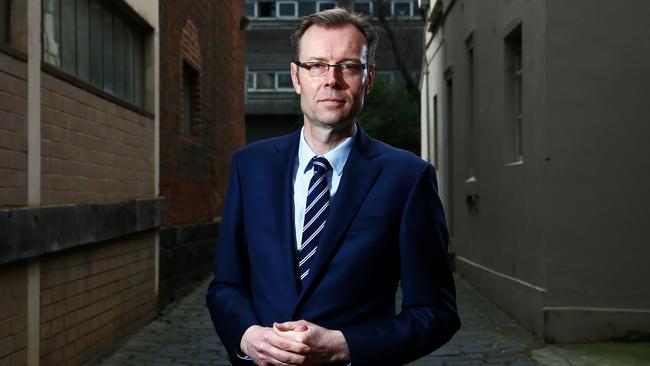More young graduates forced into Year 12 jobs
A degree is of less benefit than it used to be, with more graduates forced to take jobs requiring only a Year 12 education.

University education is of less benefit to young Australians than it used to be, with more graduates forced to take jobs requiring only a Year 12 education.
A report from the Grattan Institute released today shows that while graduates with bachelor degrees still earn more than those without, the premium for degree holders has shrunk over the past decade.
“An increasing proportion of early-career graduates are taking jobs that require only a Year 12 education, such as sales and service positions,” the report, Mapping Australian Higher Education 2018, says.
“This narrows the income gap between them and the people who finished their education at Year 12, reducing the lifetime earnings advantage of holding a bachelor degree.”
Grattan Institute higher education policy director Andrew Norton said the report revealed the impact of the global financial crisis and the end of the mining boom on graduate employment.
“This was a bad period in the labour market overall,” he said. “I think the worst is over but I don’t think we’ll return to pre-global financial crisis (conditions) either.”
Mr Norton and report co-author Ittima Cherastidtham found that in 2016, male university graduates in the 25 to 34-year-old age group were earning 3 per cent less in real terms than in 2006.
Women graduates in the 25 to 34-year-old age group were doing better, earning 4 per cent more in real terms in 2016 than in 2006. Mr Norton said this was mainly because women with children were working more.
They were increasingly staying in the workforce because of better maternity leave provisions, and working more hours because of higher government childcare benefits, he said.
According to the report, the impact on early career graduate earnings over the decade depended on the field of study. While incomes for education, nursing and medicine graduates in the 25 to 34-year-old age group went up from 2006 to 2016, incomes fell for commerce and science graduates.
“Graduates from all disciplines except education and medicine had lower full-time work rates over the decade,” the report says.
Even though the income premium earned by graduates is falling, the report finds graduates are still more likely to have a job than people who have a vocational level education or those who did not go beyond Year 12.
Last year, the unemployment rate for graduates was 2.5 per cent, compared with 4 per cent for those with a vocational diploma and 4.4 per cent for those with a Year 12-level education.
More significantly, people without a university education were far more likely to have dropped out of the labour force, meaning they would not show up in unemployment statistics.




To join the conversation, please log in. Don't have an account? Register
Join the conversation, you are commenting as Logout